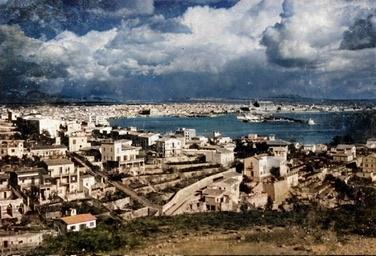In what ways has coastal urban development impacted the natural habitats crucial for Mallorca’s biodiversity?
Similar Topics
coastal urban development
mallorca biodiversity
habitat fragmentation
ecosystem loss
pollution impact
marine life degradation
tourism infrastructure
sustainable development
Coastal urban development in Mallorca has significantly affected the natural habitats essential for the island’s rich biodiversity. The expansion of resorts, residential areas, and infrastructure along the coastline has led to habitat fragmentation and the loss of critical ecosystems such as dunes, wetlands, and pine forests. These environments serve as vital breeding, nesting, and feeding grounds for numerous plant and animal species unique to the Balearic Islands. As natural landscapes are replaced or altered by concrete and asphalt, many native species face challenges in maintaining their populations due to the reduction of available habitat space and the disruption of ecological corridors.
Moreover, the increased human presence brought about by urbanization has intensified pollution levels, both from runoff and waste, which further degrade coastal waters and soils. This pollution impacts marine life, including seagrass beds and coral communities that play a crucial role in maintaining the health of coastal ecosystems and supporting fish populations. The pressure on freshwater resources draws further strain on local wildlife, as altered water cycles from construction and human use reduce the quality and quantity of water flowing into coastal wetlands. Consequently, sensitive species, some of which are endemic or endangered, suffer from habitat alteration and contamination that reduce their resilience in an already fragile ecosystem.
Additionally, the ongoing increase in tourism-related infrastructure contributes to light and noise pollution, which disrupt natural behaviors of various coastal and nocturnal species. The combined effects of habitat loss, pollution, and disturbance threaten Mallorca’s biodiversity, highlighting the importance of sustainable development practices. Initiatives that prioritize ecological preservation alongside urban needs are critical to safeguarding the island’s unique natural heritage while supporting its economy. In this way, maintaining a balance between development and conservation remains a vital challenge for Mallorca’s future.
Moreover, the increased human presence brought about by urbanization has intensified pollution levels, both from runoff and waste, which further degrade coastal waters and soils. This pollution impacts marine life, including seagrass beds and coral communities that play a crucial role in maintaining the health of coastal ecosystems and supporting fish populations. The pressure on freshwater resources draws further strain on local wildlife, as altered water cycles from construction and human use reduce the quality and quantity of water flowing into coastal wetlands. Consequently, sensitive species, some of which are endemic or endangered, suffer from habitat alteration and contamination that reduce their resilience in an already fragile ecosystem.
Additionally, the ongoing increase in tourism-related infrastructure contributes to light and noise pollution, which disrupt natural behaviors of various coastal and nocturnal species. The combined effects of habitat loss, pollution, and disturbance threaten Mallorca’s biodiversity, highlighting the importance of sustainable development practices. Initiatives that prioritize ecological preservation alongside urban needs are critical to safeguarding the island’s unique natural heritage while supporting its economy. In this way, maintaining a balance between development and conservation remains a vital challenge for Mallorca’s future.
🧩 Related Questions
Related Question
How has the rise of organic farming in Mallorca influenced its food culture for visitors?
Related Question
What unique endemic species of Mallorca are featured in the Lluc Museum's wildlife exhibits?
Related Question
In what ways do carob trees' leaves contribute to reducing water loss through transpiration?
